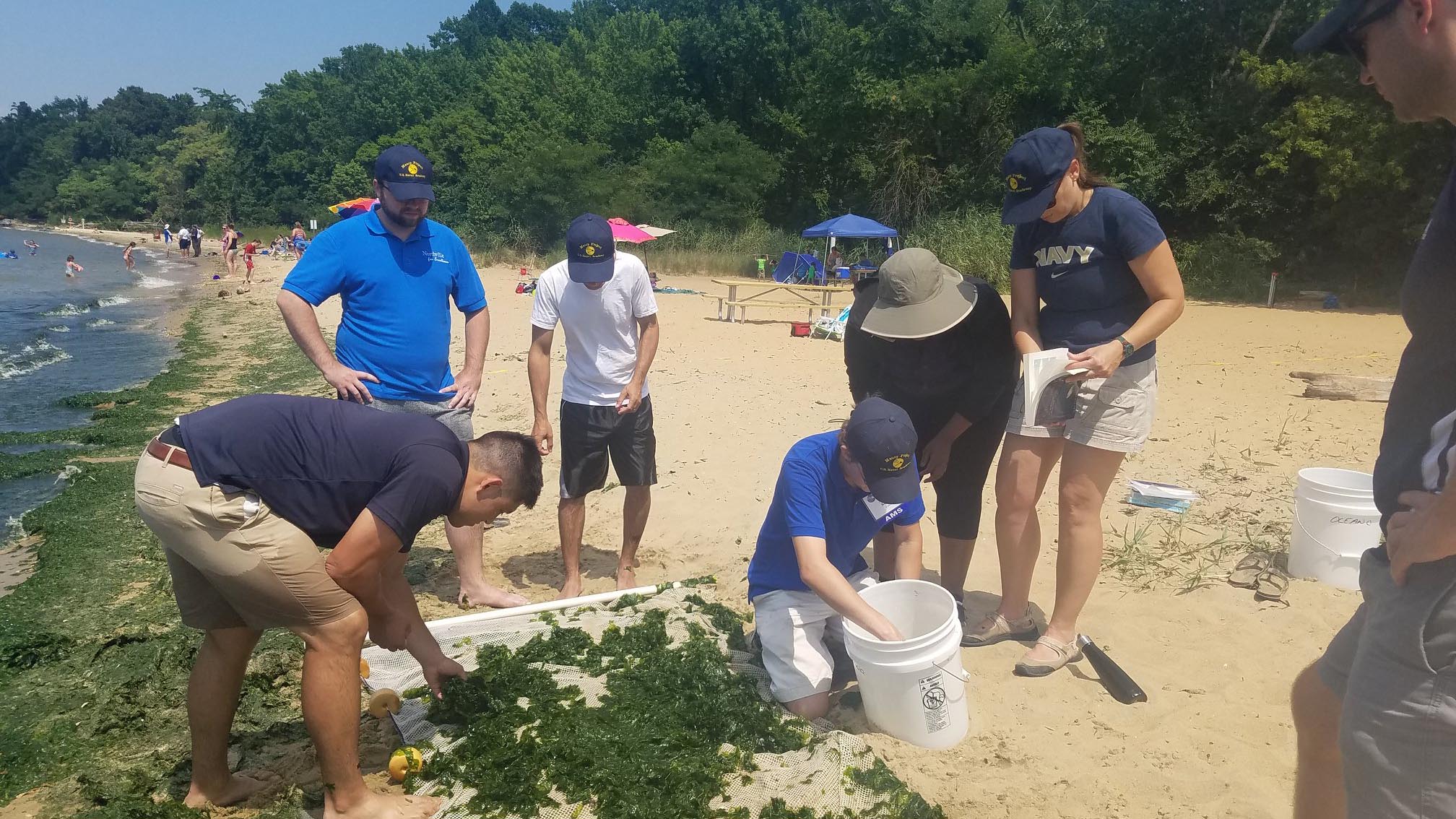Project Ocean is a partnership between Cal U and the American Meteorological Society.

Teachers participate in Project Ocean research.
In partnership with the American Meteorological Society (AMS), California University of Pennsylvania has received a three-year, $97,137 grant from the Office of Naval Research to continue Project Ocean, a hybrid online and in-person K-12 teacher professional development course at Cal U.
Cal U has partnered with AMS on teacher professional development course offerings since 2017.
The grant-supported course is part of Cal U’s exclusive post baccalaureate AMS DataStreme certificate program, where students can apply AMS partnership courses toward a nine-credit certificate.
Selected AMS partnership courses, such as Project Ocean, can also be applied toward the Weather & Climatology concentration in Educational Leadership master’s degree program.
Cal U’s 30-credit master’s degree is the only M.Ed. program that incorporates coursework offered in partnership with the AMS.
Students who enroll in the course are required to be on site in the Chesapeake Bay region in the summer for course instruction and hands-on learning activities. During the on-site portion, students benefit from the engagement and resources of its partners including the U.S. Naval Academy, the National Oceanic and Atmospheric Administration (NOAA), Washington College, in Chestertown, MD, and the AMS.
While the pandemic has altered summer plans, grant funds are also being used in the first year to modernize many of the course learning modules for an online environment.
“We are working virtually this summer, especially in the modernization of ocean learning modules at a distance,” said Dr. Chad Kauffman, professor in the Department of Math and Physical Sciences and curriculum development coordinator for the AMS DataStreme program.
Kauffman said work is being done via D2L, Cal U’s online learning platform, as the project’s central resource or connection point. They are also using Zoom video conferencing tools.
The residency portion, in a non-pandemic year, is scheduled for a full week on site in the Chesapeake Bay region. There are online portions of the course prior to and after the residency. In normal years, Kauffman works on site at the workshop providing instruction.
Students are taught the physical foundations of modern oceanography, conduct field work, and are required to conduct peer-training workshops after the completion of the residency portion of the course.
Kauffman emphasized the important roles that Cal U students must play regarding the ocean. He also lauded faculty colleagues Dr. Mario Majcen and Dr. Swarndeep Gill, as well as campus deans Dr. Brenda Fredette (Eberly College of Science and Technology) and Dr. Yugo Ikach (School of Graduate Studies and Research) for supporting the AMS partnership and welcoming much needed grant funding.
“The ocean is a dynamic and critical player in the Earth’s climate system, an integral part of Earth’s global water cycle and home to a multitude of biological ecosystems,” he said. “The times in which we live call for Cal U students to be hyper-aware of global events and stewards of our critical physical systems.”
AMS/Cal U funding via ONR Grant No. N00014-20-1-2384
